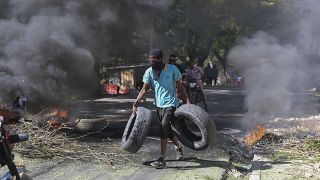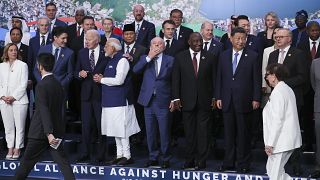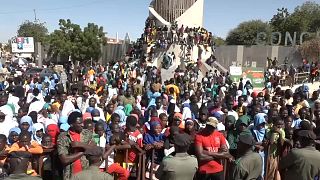Tunisia
Concern is mounting over freedoms in Tunisia as President Kais Saied presses ahead with a "purge" that has seen politicians, judges, and businessmen arrested or banned from travel, activists say.
On July 25, Saied sacked the government and suspended parliament for one month citing powers he says were granted by the constitution, but he has yet to reveal a "roadmap" for his decisions despite repeated demands by political parties.
Saied's shock move has sparked uncertainties for Tunisia, where the Arab Spring began a decade ago, setting in motion pro-democracy revolts across the region that unseated autocratic leaders.
Tunisia, hailed as a rare democratic success story in the Middle East and North Africa, is mired in a political crisis compounded by dire economic woes and the Covid-19 pandemic.
Several politicians, businessmen and judges, as well as members of parliament -- who lost their immunity after Saied suspended the legislature -- have said they were banned from travelling abroad or put under house arrest without prior warning.
Their claims have sparked a chorus of condemnation, with critics denouncing "arbitrary" and "unjustified" measures.
But Saied offered a stiff response to his critics during a recent visit to the Tunis-Carthage International Airport.
"The freedom to travel is a constitutional right which I promise to guarantee," he said.
"But some people will have to answer to the judicial authorities before being able to travel".
30-day deadline looms
I Watch, a Tunisian non-government group that battles corruption, said at least 14 members of parliament face legal proceedings or have been sentenced over a range of crimes.
Among the MPs is Yassine Ayari, who was found guilty by a military court in 2018 of criticising the army, and Faycal Tebbini, sentenced in a libel case.
Media outlets have also been targeted since Saied's shock July measures, including Al Jazeera television.
The Qatari broadcaster was shut by police in the Tunisian capital and the keys to the premises confiscated. No reason was given for the closure.
With the deadline on his month-long suspension of parliament looming, Saied is due to address the nation in the coming days.
According to Ben Achour, he is expected to extend this suspension.
"And this can go on for years," she said.
AFP










01:48
Mixed feelings among Senegal's residents about election, as government claims victory
01:00
Tunisia: French student detained for weeks, flies back home
01:00
Maori MPs stage haka protest against treaty bill
Go to video
Ghana's Supreme Court restores NPP's Parliamentary majority ahead of December election
01:47
Kenya's new deputy president sworn in as his predecessor challenges his impeachment in court
Go to video
Tunisia: Kais Saïed takes oath for his 2nd presidential term